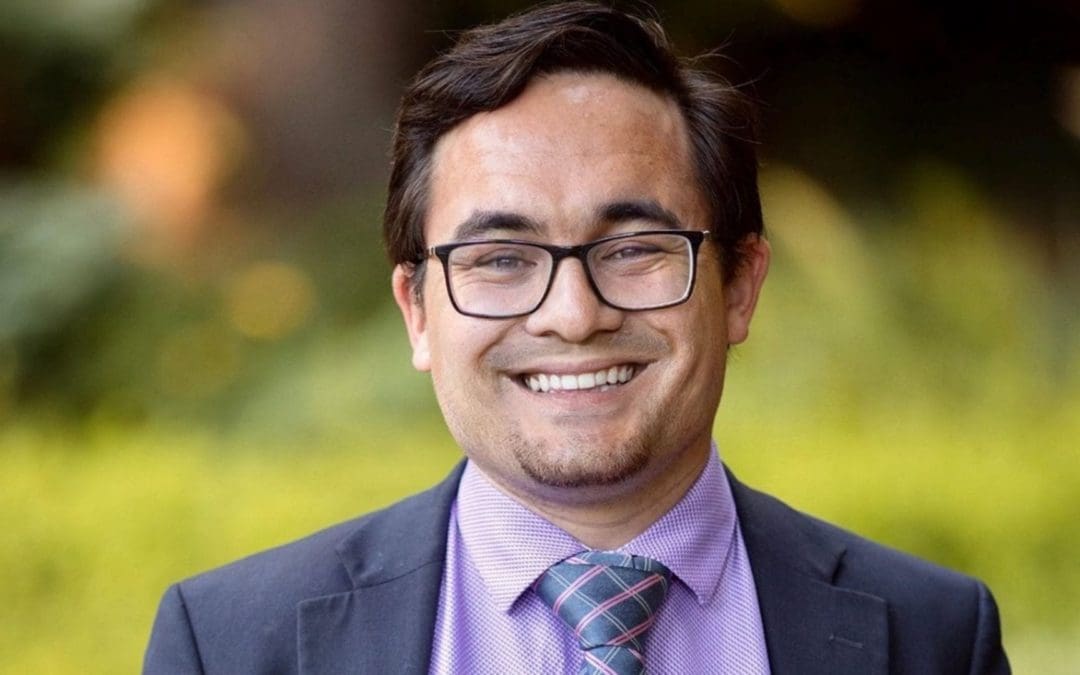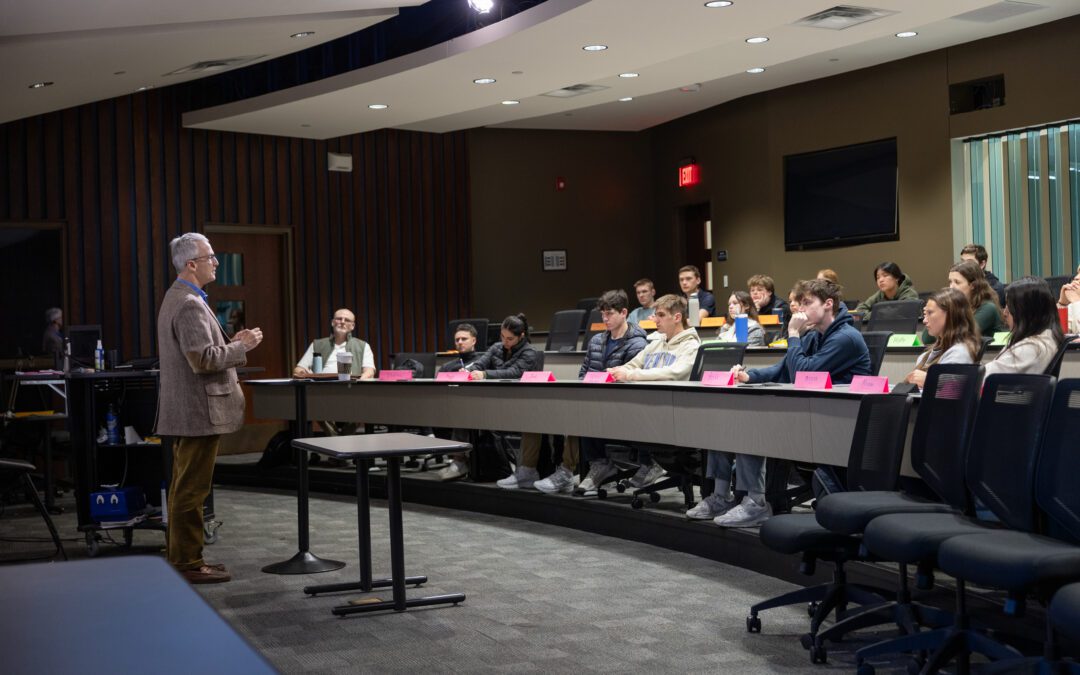When Thujee Lhendup arrived on OKWU’s campus in August of 2007, it wasn’t just his introduction to college life – it was his introduction to North America.
“Oklahoma was my first port of entry,” he said. “My first stop.”
Lhendup’s father was Bhutanese, and his mother was English. Raised in Bhutan, he attended public schooling through high school graduation and heard about OKWU through visiting American friends. Though finances initially proved to be a hurdle, a door soon opened, and Thujee was on his way to America.
The transition proved to be a challenge at first. “I think it was a shock to the system,” he said. “My first three weeks were rough because I knew nobody.”
One particular hurdle, says Lhendup, was navigating the stereotypes that most Americans view international students through. He didn’t seem to fit – his mother was English, English was his first language, and he was anxious and eager to assimilate into American culture. “It was interesting learning where one fit in,” he said.
“It was a real time of growth in my faith. And some of my most solid friendships, years later, have come from my time at OKWU.”
He eventually found his OKWU niche through a men’s Bible study hosted by Kyle White. “I met some of my closest friends through that study,” he said. “By the end of my freshman year, I didn’t want to leave.”
But as the clock wound down on his freshman year, finances again proved to be an issue. He eventually decided to transfer to Mississippi College, a Baptist school where he could get better scholarship opportunities. The college also had a law school, and securing a J.D. had always been Lhendup’s goal. At this point, he still assumed that he would gain his law degree, return to Bhutan, and make a career for himself back home. But life happened.
“God really had to reveal to me that how I want things to work out isn’t always how He wants things to work out. Obviously, I’m not in Bhutan. I’m not a lawyer, I don’t practice law,” he said. “Things changed along the way.”
His senior year at Mississippi College, Lhendup met Ruth Elizabeth, the woman who would become his wife. He graduated with his undergraduate degree – completely debt-free – and moved on to law school, completing the coursework in two and a half years instead of the recommended three. The Saturday before his final exams, Thujee and Ruth Elizabeth were married.
“In retrospect, law school was tough because of my legal status,” Lhendup said. Along with the rigorous coursework, he took time applying for his permanent residence in the United States – a grueling process that didn’t allow him to work in the interim. He never ended up taking the bar exam, partly due to this period of life’s challenges.
“That was just a lesson in learning to depend on the Lord for his provision,” Lhendup said, noting that a significant source of strength came from their local church, which helped them achieve stability and gave them ministry opportunities. “They just helped us through that period.”
When he finally did receive his permanent residency, Lhendup took a job with a Mississippi non-profit working with special needs individuals. The role wasn’t something he expected, particularly, but it ended up having a significant impact on the trajectory his life would take. “I just fell into that role, quite by accident,” he said.
The job lasted a little over two years. When Ruth Elizabeth became pregnant, the couple decided to move to Oregon to be closer to her family. This move, too, turned out to be a major blessing, as their son James was born with severe kidney complications.
“That was just God’s way of allowing us to be closer to more specialized doctors for treatment during his first year of life,” Lhendup said.
In Oregon, he began working at Belloni Ranch, the rehabilitation center for young people in the juvenile justice system, where he remains today. It’s not an easy job or one devoid of sadness and heartbreak, but Lhendup says he’s used the role to help him grow closer to God.
“It’s taught me a lot about God’s redemptive justice,” he said. More than that, the role allows him to reflect on the forgiveness he’s seen in his own life – how God has moved through broken relationships and difficult life-stages.
“God really had to reveal to me that how I want things to work out isn’t always how He wants things to work out. Obviously, I’m not in Bhutan. I’m not a lawyer, I don’t practice law. Things changed along the way.”
And throughout their time in Oregon, God has continued to move, both in Lhendup’s career and in his family life. Belloni Ranch allows the family financial stability – the family is preparing to buy their first home – and little James has undergone a drastic turnaround.
“God has healed him completely,” Thujee said. “[He] has just blessed us tremendously. Financially, and getting us stability, and providing for us to be able to meet our needs and be debt-free through it.”
The big question now? What comes next. Lhendup always assumed that he would eventually move back to Bhutan, but getting legal status for his wife and son is not automatic. The current pandemic also makes travel plans chaotic. For now, he says, they’re happy where they are.
“God just opened the doors for us to stay here, and we’ve had ministry opportunities to get involved with in lots of ways,” he said.
Looking back, Lhendup considers his time at OKWU to be formative in his life and walk with the Lord, even though he only attended for one year. “It was a real time of growth in my faith,” he said. “And some of my most solid friendships, years later, have come from my time at OKWU.”
As his introduction to the United States, OKWU was the gateway to the rest of his life. His advice for students experiencing that life change now is to get deeply connected as soon as possible.
“Go to chapel. Grow in your faith,” he said, remembering the impact that those at OKWU had on his life. “I never told them enough what their dedication to ministry meant. In retrospect, [it] kept me going. It kept my faith strong and it gave me something to cling to.”



